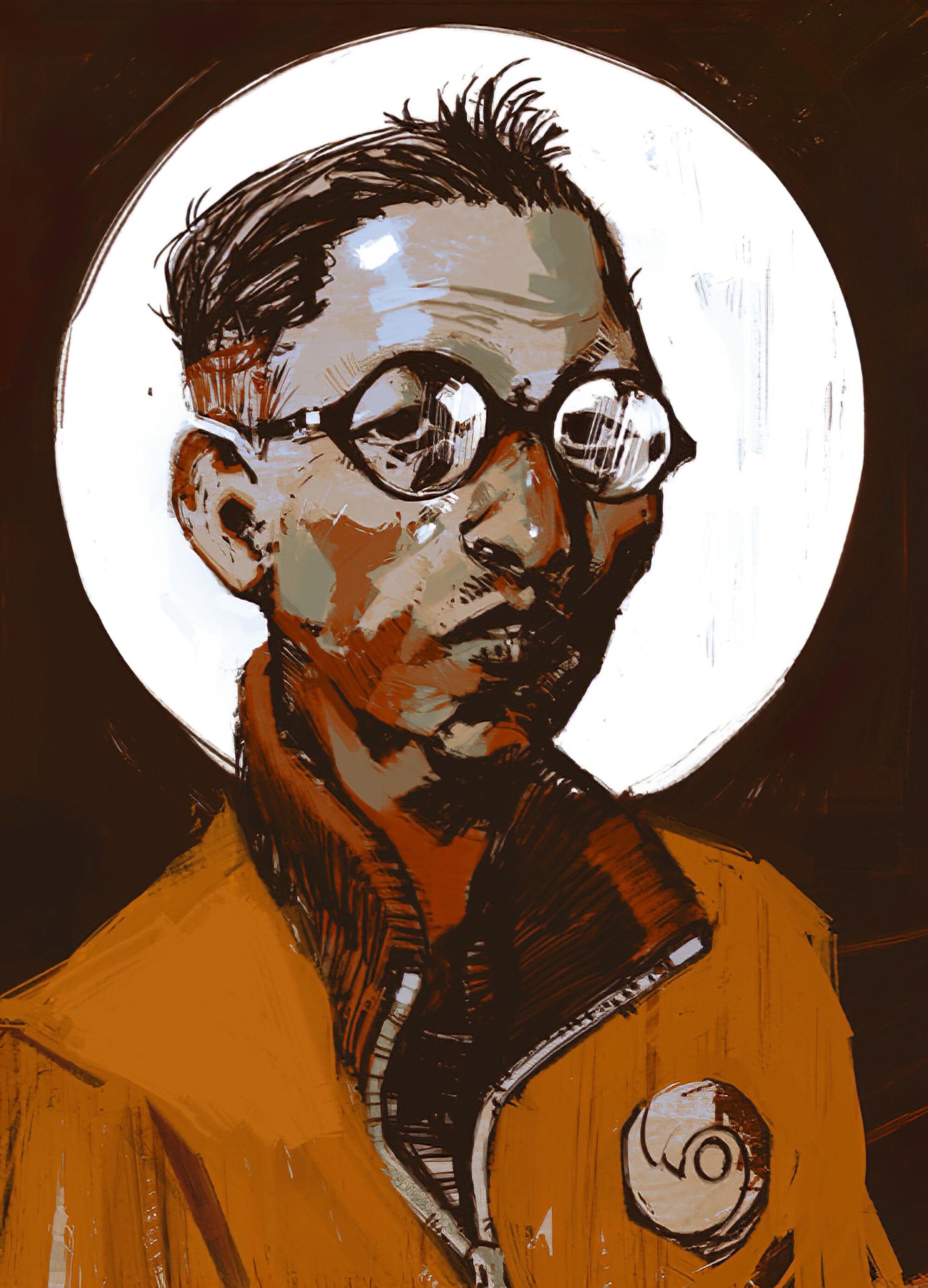I was an anarchist for a huge part of my life (most of my teenage years) and kinda began to get more connected with M-L and stuff like that, and I would call myself a marxist. Yet, everytime I talk with other leftist I either get called a tankie or an anarkiddie. If I recommend Das Kapital, I'm a state bootlicker or a left wing fascist. If I talk about how I prefer direct democracy but know that the process to communism is slow and needs some help of a state, I get called an anarkiddie. Anyway, I just find exhausting the infighting. I already struggle a lot with mental health just to be poorly treated by other people that, supposedly, want the same as all of us. Anyway you guys in lemmygrad have been always so nice, thanks btw. Have a nice week and thanks for reading my small rant.
trust me on this comrade, the people that call you tankie or state bootlicker are not left at all. also, socialist countries do have mechanisms of direct democracy.
I wouldn't take anyone who throws tankie or red fash at you seriously. I roll my eyes when I hear those terms, I'd recommend seeking out some comrades through a local org or at least hanging out on here and hexbear.
If the people you talk to reject Das Kapital, they are no Marxists, and not worth your time. Focus on connecting with other Marxists. Left unity is a fantasy: Marxist unity is very doable, and essential to building socialism. Those who reject materialism will have no revolutionary clout and only hinder the unity you seek.
Direct democracy is very prominent on a local level in at least Cuba and China (at least that's my impression), and probably in the DPRK, Vietnam and Laos, too. Having no elected representatives is completely unfeasible on a national level for any country with more than a hundred thousand or so citizens (and even that's stretching it IMO -- I doubt most people would be interested in keeping track of the effects of policies and events on tens of thousands of other people, especially if that's not their full-time job), which is why AES countries use representative systems but ensure that officials can be stripped of their positions if their work is unsatisfactory. With that said, a disagreement on that front doesn't justify insults
(obviously, people who reject you for recommending Capital are just unserious and/or ignorant, likely both)
Don't take anyone calling you tankie as an insult seriously, they're definitely libs.
Hope you have a nice week too.
I was part of the PSL (Party for Socialism and Liberation, a Marxist-Leninist political party in the U.S.) delegation to a local area coalition-building meeting w/ several other Left-wing orgs (DSA, SRA, CPUSA, IWW, + a couple others too unimportant to remember).
Only a few minutes into the meeting while discussing future additions to the coalition, one of the SRA guys said "Anyone but tankies". I honestly burst out laughing. We're the tankies! We're already in your coalition! Ffs.
this, for sure. anyone who calls you a tankie for that is just plain wrong. anyone who calls you an anarkiddie for preferring direct democacy is just plain wrong.
I was once an anarcho-communist, a Trotskyist sympathizer, a Maoist, a generic "communist", on and on. It is a learning process, and we are all growing.
Don't let others' opinions on your beliefs shape them necessarily. Be cognizant of differing views, but I suggest trusting yourself first and foremost. Trust your own research, trust your own ideas, trust your own thinking skills, and don't let people confuse or confound you.
The mass popular election of the supreme executive of a nation is a ritual so deeply ingrained in the western psyche that it is possible that any kind of Socialism with Western Characteristics will simply opt to maintain it indefinitely. We should, however, understand that under the dictatorship of the bourgeoisie, it is simply a pressure valve for discontent. Figures around the globe that have advanced against Capital while playing completely by the constricting rules of electoral democracy have all quickly found that Capital will soon abandon pretense and move against them in a gangster fashion when able. Some examples that illustrate this pattern are Hugo Chavez, Evo Morales, Salvador Allende, Olof Palme, Enrico Mattei, and Mohammad Mosaddegh.
In addition to open gangsterism, we can also observe the steady erosion of the ability of any of these venerable political institutions to challenge Capital. Consider term limits. The US Constitution was amended to enforce term limits in direct response to FDR’s popular 12-year presidency (he died in office, going on for 16). As a policy, it is self-evidently quite anti-democratic (robbing the people of a choice), but nevertheless it has been conceptually naturalized to the extent that the 2019 coup against Evo Morales was premised explicitly on the idea that repeated popular electoral victories constituted a form of dictatorship. If rotation was important to avoid corruption or complacency, corporations and supreme courts would institute term limits too. Term limits ensure that in the miraculous scenario that a scrupulous, charismatic, and intelligent individual becomes a rebellious political executive, they won’t be in power long enough to meaningfully challenge the entrenched power of corporate vehicles manned by CEOs with decades of experience. Wolfgang Schäuble, a powerful advocate of austerity policy in Europe, succinctly summarized the extent to which electoral democracy is subordinate: “Elections cannot be allowed to change economic policy.” One Party States and Democratic Centralism are not the result of lack of sophistication or cronyism, they are a proven bulwark that acknowledges that political power will often need to be exerted against the will of Capital, and so the wielders of said power must necessarily undergo a much more serious vetting process than a popularity contest.
from https://redsails.org/why-marxism/
aimixin on direct democracy:
On a small scale, direct democracy is great, the problem is when you try to scale it up, direct democracy transforms into its opposite and becomes the greatest hindrance to democracy.
The problem is, and I know leftcoms don't like to hear this, but regular people are not omniscient! The large the scale of the election, the more difficult it is for a person to even grasp the full scale of what they're voting for.
Take, for example, the US presidential election. If Joe Biden had a 5 minute conversation with every single American of voting age, it would take almost 2000 years to complete. It's not physically possible for regular people to come to know a candidate on an election of this scale organically.
How do they come to know them, then? Simple, through media institutions. You cannot vote for someone without knowing who they are, and hence, whoever is placed on the media will be the first step in the nomination process to decide who can get elected, since it will be impossible for voters to even know who they are voting for without the media.
Who ran for president in the US last election? You can probably say Joe Biden, Donald Trump, maybe if you followed it closely you'd know some less known candidates like Bernie or Howie.
In reality, 1,216 people ran for president in 2020. Yet, you don't know of almost any of them. Because you only know of who the media told you about. And it's even worse in the US because the media is controlled by money so a candidate's viability is directly linked p with how much money they raise to appear in the media.
In practice, large-scale direct democracy always just devolves into a dictatorship of the media. Whatever small group has control over the media will control all of society, because regular people are not omniscient and won't understand how to run a country as big as China with over a billion people, and will rely on the TV to tell them how to vote, not because they're not smart, but because nobody is that smart. You aren't either, nor am I.
With some exceptions like national referendums on issues people might actually generally know about, in general, all elections should be very small in scale, or else they will be easily susceptible to manipulation.
Yes, for a large society, this requires many layers of elections, but it originates from small scale direct democratic elections at the base, and every layer going up is subject to the right to recall by the one below it. Each election is small enough so that people know who they are voting for at every step, so it is a rational system and not a chaotic one, producing efficient government that has its roots in the public.
This is far more functional than some chaotic direct democracy where 1+ billion Chinese people vote on every single issue. Such a thing would be a complete disaster and not democratic at all.
It also adds a benefit of making it rather difficult to climb to the top. To be president, you have to constantly prove yourself on every layer. You have to start small, directly elected at the root, and prove yourself at a local level, and eventually work your way up until you eventually prove you can manage towns, cities, whole provinces, until you can even be considered to be at the helm of the entire nation.
Adding these layers not only makes it more democratic and rational as a system but it also has a benefit of inherently injecting merit into the process.
The obsession over direct democracy for everything needs to go. It works well for somethings, small-scale elections at the base for the first layer of representatives, and occasionally on natural referendums where certain issues affect everyone. But it is not some cure-all silver-bullet for everything and is in fact a complete disaster if you try to apply it to everything.
https://np.reddit.com/r/Marxism_Memes/comments/ycetb8/xi_jinping_has_been_elected_for_an_historic_third/itnxews/
OP has nuked all their comments though so it's gone, these are from stuff I saved beforehand
I always come back to two things on leftist infighting:
- We all want to get to more or less the same place. It's like we're planning a road trip from New York to Los Angeles, and leftist infighting at this stage is like punching out your road trip friend before you even get in the car because you disagree about the route you take after you cross the Mississippi.
- In the imperial core we're so far away from the material conditions that were present at the start of any AES state that no one can be certain about how we will get from here to a classless society. We all have our educated guesses, but we should also have some level of open-mindedness and humility because we're in such a radically different environment than anything that came before.
Yet, everytime I talk with other leftist I either get called a tankie or an anarkiddie.
Do you talk with any leftists offline?
I got called a tankie irl once. It was funny
Another called me redfash bc I said he shouldnt teach Charles Murray in his college course.
Both people describe themselves as anarchists too.
In recent years I've taken the leftist grillpill. There's far too few leftists/socialists around me for me to cut ties with someone just because we disagree on the route to a stateless, classless, moneyless society. Revolution in the imperial core seems so far off that I don't think distinctions like which dead socialist you think was right really matter at the moment. Maybe after the weeks when decades happen those distinctions will matter but until then I just want to find people I can talk with that aren't

I assume most, if not all, of this infighting you're experiencing is online. Don't feel disheartened by the internet discourse machine, it's entire point of existence is to create arguments so people have something to talk about since it's (nearly fully) disconnected from the stakes of the real world. Your mileage may vary but I find people in the real world are significantly less interested in relitigating the debates of the last century compared to people online, even if they do identify as a die hard [your tendency here].
My dear comrade, I'm sorry for your turmoil, it must be hard to be shunned like that indeed. But I wanna say that I'm proud of you, you looked into the theory and was not afraid to embrace what the evidence points to, instead of the toothless version of socialism of the ones that call us tankies, that is filled with lies they ate up from the CIA and other vile sources and became common sense, and I do understand why they think like that, to face and question said common sense is hard and makes people uncomfortable and creates rejection so people avoid it. All in all comrade you should stand for what you think its just and true and if it means who will be around you will change, I'm sorry for the strife it causes but at the end of the day is for the best, and know that here on lemmygrad we're all a big happy family of united tankies
I have also been an anarchist for most of my life. But thinking it over, many of the anarchist ideas regarding class struggle and capitalist critique come from Marxism. Nevertheless, the desire for a revolution that brings about tangible change, or at least the beginning of significant social transformation, and the unwillingness to play into the hands of social democrats (reformists), leads me to adopt a perspective closer to Marxist-Leninism.
I am still in formation, but that is the path I am currently taking. I have wondered if there is something like Bolshevik anarchism, but I found nothing. The closest I found was Mao-Spontex; the truth is that I find it interesting, but I don't think it is a real movement beyond the meme.
I believe that as the final phase of communism, anarchism is the ideal to be achieved; however, that state of affairs cannot be reached through anarchist tools. By this, I mean that in the process of making the revolution, a well-executed democratic centralism is more important than the rather "dispersed" decision-making, so to speak, of anarchists. Another point that comes to mind is that for anarchism to succeed, it would need a simultaneous world revolution, because otherwise, the external enemy could easily crush that society.
In short... I am in a small "crisis" in my political thinking.












